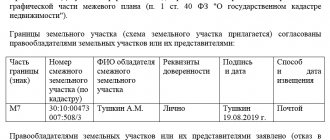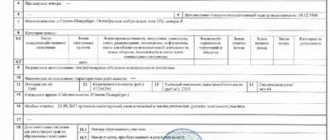There is often a situation where the land under a private house is not registered as property by the owner of the property. In this case, it is difficult to call him a full-fledged owner of the property, since he uses a plot owned by local authorities.
To eliminate this situation, current legislation allows for the opportunity to privatize a land plot under a residential building free of charge. It was introduced quite a long time ago and is available to any Russian citizen. The grounds and procedure for free privatization, the documents required for this, as well as other issues related to the registration of land ownership, are discussed in detail in the article.
The need for privatization
The lack of formal ownership of the land under the house significantly limits the possibilities for selling, exchanging, leasing or making other transactions with housing. The fact is that not every potential buyer or tenant will be satisfied with a plot that does not belong to the owner of the house, but is at his disposal on the basis of some other rights, for example, rent or perpetual use.
Another important point is the ambiguity of interpretation by current legislation. The latter perceives the house and the land underneath it as a single piece of real estate. Lack of ownership of a plot means a violation of this principle.
At the same time, it should be noted that the event in question is not mandatory. The home owner independently decides whether to exercise the right to privatize the land plot under the house or not. A positive answer to this question allows you to gain full control over the property and dispose of it at your own discretion.
The concept of a summer cottage and garden plot
Both concepts are often used together, but there is a difference between them. It lies in the intended purpose. If garden land is used exclusively for agricultural activities, then country land is used for construction. That is, in the latter case, the presence of a residential building or other building is required. It may or may not be on the garden plot - at the request of the owner. If there is no structure on the dacha plot, this is considered a violation of the intended use of the land.
The first thing you need to do for privatization is to collect all the documents. As a rule, this does not take much time and the process can be completed in a short time.
Legal regulation of the issue
The procedure for privatization of land plots located under private houses is regulated by several federal legislative acts. Four of them can be identified as basic:
- Land Code of the Russian Federation. Adopted after the signing of No. 136-FZ, dated October 25, 2001. The current edition entered into force on August 28, 2021;
- No. 178-FZ (dated December 21, 2001). Determines the rules for privatization on the territory of the Russian Federation. Today the version of the Federal Law of July 31, 2021 is in force;
- No. 93-FZ (dated June 30, 2006). The procedure for dacha amnesty is established;
- No. 218-FZ (dated July 13, 2015). The procedure for state registration of real estate is regulated. The current version of the Federal Law was also adopted on July 31, 2021.
Where to begin?
In order to carry out the land privatization procedure, it is necessary to contact the authorized official bodies. These are the local administration and the Federal Property Management Agency.
When to go to your local municipality?
You should contact the local administration in cases where the land plot is in municipal ownership. Information about the ownership of the territory can be obtained by contacting the specified authority.
When to visit the branch of the Federal Property Management Agency?
In the case of a site under federal jurisdiction, you must contact the territorial office of the Federal Property Management Agency. Such bodies are located in every region and subject of the Russian Federation.
Grounds for free privatization
The legislation provides for two possible options for registering ownership rights to a land plot. The purchase of land, which is carried out at the cadastral value, becomes less profitable for the future owner.
The basis for launching the second option – free privatization – are:
- a lease agreement or an agreement on the perpetual use of land concluded with the municipality;
- allocation of a plot for one of two types of permitted use - private plots or individual housing construction;
- participation in the so-called dacha amnesty;
- the right to receive social benefits from the state (for WWII participants, the poor, members of large families, etc.);
- owning a house up to and including 1991;
- belonging of the site to the lands of a dacha cooperative, gardening partnership or vegetable gardening.
This list covers a significant part of the land plots located under private houses. Therefore, in most cases, the home owner has the right to free privatization of land.
Filling out an application
The text of the application must include the following information:
- Full name and details of the applicant;
- Location of the house and plot;
- Land category and purpose;
- Presence of encumbrances (including rights of 3rd parties);
- Type of right to use the allotment and details of the certificate of such right;
- List of buildings and structures within the boundaries of the allotment.
If the plot is in the common use of spouses or other persons, it is necessary to indicate in the application each person entitled to privatization.
Officials accepting the application do not have the right to demand that the application contain data that is not included in the sample approved by order of the Ministry of Economic Development.
A sample application can be downloaded here.
Reasons for possible refusal
The decision on the possibility of free privatization of land is made at the municipal level. Among the most common reasons for refusal to hold an event are the following:
- the site does not belong to the municipality. This means that the land has been withdrawn from circulation into reserve or transferred to a specific department, for example, the FSB or the Ministry of Defense;
- privatization is being repeated. In such a situation, it is necessary to restore the ownership documents that were issued for the first time;
- required documents are missing. The list is given below;
- land is not subject to alienation into ownership, since it belongs to a forest or water fund, a park or environmental zone, a place of public use, etc.
Refusal to privatize land must be justified. Contacting a qualified lawyer will allow you to determine its legality and, if necessary, challenge it in court.
What to do if a residential property is privatized, but the land plot is not?
If an applicant wants to obtain ownership of a plot on which a residential property is located, already registered in Rosreestr, then he must:
- collect documents for the house, similar to those prepared for the land;
- submit the entire set to the authorities - MFC, administration;
- expect results.
Consequently, there are no significant differences with the procedure for registering empty land. According to established practice, when establishing the boundaries of the site on which a residential property is located, the data of the land allotment document and the required minimum for unhindered use are taken as a guide.
Privatization procedure
A simplified privatization procedure is available to participants of the dacha amnesty. In other cases, the sequential implementation of several stages is required, each of which is worth considering in more detail.
Stage No. 1. Formation of a set of documents
The standard set of documentation includes:
- passport details of future owners;
- TIN of each of them;
- title documents for a plot of land. These include: a lease or perpetual use agreement, a deed of gift, a right to enter into inheritance, allocation for individual housing construction, etc.;
- land documentation (if available) – cadastral and technical;
- title documents for a residential building (extract from the Unified State Register of Real Estate, purchase and sale agreement, etc.);
- certificate of land value according to cadastral registration;
- documents on the amount of land tax and the absence of debt for its payment.
Stage No. 2. Completing and submitting an application
The basis for launching the privatization procedure is an application. The document is drawn up in free form, but must contain several details, including:
- name of the municipal body dealing with the issue;
- Full name of the applicant;
- his contact details;
- information about the plot of land (as complete as possible);
- application for land ownership;
- signature with transcript;
- date of document preparation.
The application form and sample can be found here.
Stage No. 3. Land surveying
The preparation of survey and cadastral documents is carried out by specialized organizations, whose staff includes cadastral engineers. The latter are subject to a number of requirements, the fulfillment of which is mandatory for conducting professional activities. Among them:
- specialized education;
- participation in SRO;
- a valid certificate of confirmation of qualifications.
The result of the cadastral engineer’s work is a set of documents. It is necessary for registering an object and entering it into the Unified State Register, as well as for subsequent state registration of property rights.
Stage No. 4. Signing an agreement with the municipality
The privatization agreement is signed by the new and old owner of the land. The document contains comprehensive information about the land plot, including information obtained as a result of land surveying and cadastral work. In this case, we are talking about the area and location of the land, the number of owners and their shares, the purpose of the site, etc.
Stage No. 5. State registration of property rights
The final stage of the described procedure. Provides for the formation and submission of a set of documents to Rosreestr. Documentation is provided both during a personal visit to the territorial division of this department, and by contacting the MFC. Registration of ownership is confirmed by an extract from the Unified State Register of Real Estate.
Duration of privatization
Privatization of a land plot for a residential building is a multi-stage event. Each stage takes a certain time. For example, the maximum period for consideration of an application for privatization is 2 months. In practice, it can be increased to 3-4 months.
It takes at least 2-3 weeks to complete land surveying and cadastral work. It takes another half a month or even a month to prepare and conclude an agreement with municipal authorities. Certain time costs are required to prepare a set of documents submitted to Rosreestr. The registration period is 7 or 9 working days, depending on the method of submitting documentation. The first figure provides for contacting directly to Rosreestr, the second - to the MFC.
Related costs
Despite the fact that the event in question is declared as free, certain financial expenses for its implementation are necessary. The exact answer to the question of how much it costs to privatize land for a private house depends on several factors. The main one is regional characteristics, which affect both the cost of the work of cadastral engineers and the notary’s prices.
The final price of privatization measures is formed from three main components. The first is the cost of surveying and cadastral work. The second is notarization of documents. The third is the state duty for obtaining an extract from the Unified State Register of Real Estate.
Legal assistance
The legislation carefully regulates the procedure for privatization of real estate. Transferring land into private hands is a rather complex undertaking. The applicant will have to collect an impressive package of documents, competently draw up an application, wait for a response from the administration, pay for services and perform a whole series of other actions. It is extremely difficult to cope with everything alone. One wrong decision, and the procedure can be significantly delayed or lead to litigation.
We recommend taking advantage of a free legal consultation.
Our portal employs real professionals in their field. By contacting an expert, you will receive a detailed answer to your question. The lawyer will advise you on how to properly privatize the land under your house, prepare a list of documents for you, help resolve disputes with other participants in the privatization and protect you from wrong steps. You shouldn’t be left alone with your problem - contact a lawyer and you will save not only time, but also nerves. Attention!
- Due to frequent changes in legislation, information sometimes becomes outdated faster than we can update it on the website.
- All cases are very individual and depend on many factors. Basic information does not guarantee a solution to your specific problems.
That's why FREE expert consultants work for you around the clock!
- via the form (below), or via online chat
- Call the hotline:
- Moscow and the Region
- St. Petersburg and region
- FREE for a lawyer!
By submitting data you agree to the Consent to PD Processing, PD Processing Policy and User Agreement.
Anonymously
Information about you will not be disclosed
Fast
Fill out the form and a lawyer will contact you within 5 minutes
Tell your friends
Rate ( 1 ratings, average: 5.00 out of 5)
Author of the article
Maxim Privalov
Lawyer. 2 years of experience. I specialize in civil disputes in the field of housing and family law.
Author's rating
Articles written
610
Privatization of land within the framework of the dacha amnesty
The dacha amnesty refers to a simplified procedure for registering the owner’s rights to residential and garden buildings, as well as the land located under them. The rules for implementing the event change periodically, and the validity period is regularly extended. A bill providing for the extension of the dacha amnesty until March 1, 2026 is currently under consideration in the State Duma.
The main difference between land privatization in this case is the opportunity to contact the Rosreestr authorities directly. In this way, it is possible to significantly reduce the duration of the procedure. If you submit documents directly to the territorial division of the department, they will be reviewed within 10 days. When applying through the MFC, the period increases to 14 days.
To be able to privatize land within the framework of the dacha amnesty, two conditions must be met: provision of an allotment for private plots or individual housing construction and registration of the constructed house as property.
Until what year was it extended?
Previously, the end date for the free transfer of land was December 2013, then it was extended several more times.
And after March 1, 2021, Federal Law No. 171 dated June 23, 2014 came into force, which simplified the redemption of plots.
At the same time, the Law stipulated that after March 1, 2021, free privatization will be prohibited.
In 2021, privatization under the “dacha amnesty” was extended until 2019, but then fresh news came in which citizens were notified that the period for free registration of plots of land had been extended again, now until 2021.
Features of privatization with several owners
In practice, a situation often arises when a house is owned by two or even more owners. In this case, the privatization procedure occurs in the following order. An application for obtaining land ownership rights is submitted by one of the owners. The second is documenting consent to this. After approval from the municipality, the land plot is divided in proportion to the shares in the house, which is documented by a cadastral engineer. Each owner is responsible for registering ownership rights to their plot independently.
If the consent of the second owner for privatization is not obtained, an appeal to the court will be required. This leads to a significant delay in the process, and a positive decision from the judge is not guaranteed. Therefore, it is much easier and more correct to reach an agreement with all home owners.
Is it necessary to do this?
Registration of the site where the property is located is not a mandatory procedure.
Residents can only privatize the house, and the municipality or state will remain the owner of the land. Among the advantages of this solution is that you will not need to pay property taxes. The disadvantages include the fact that it will not be possible to make transactions with real estate that require registration steps.
The owner will not be able to erect outbuildings on the site, as they will be considered “self-construction”.









